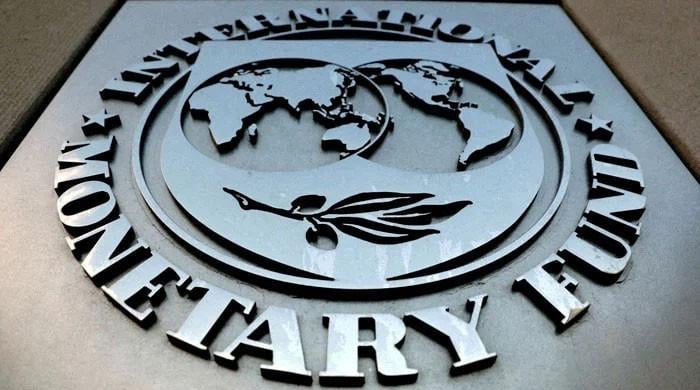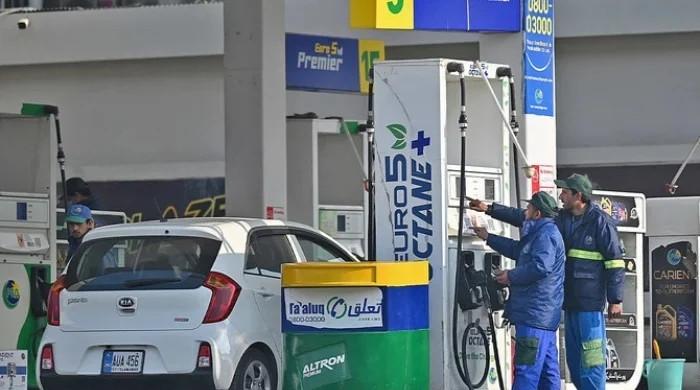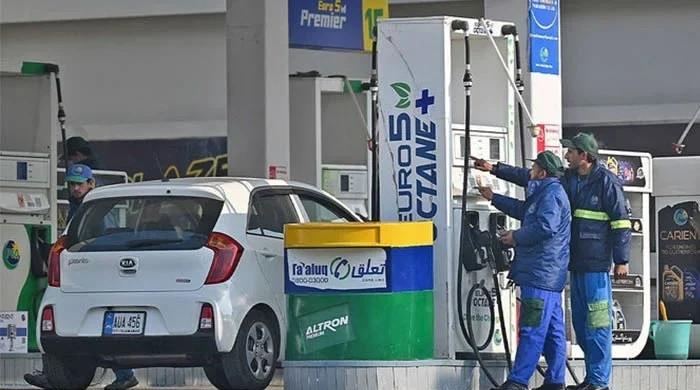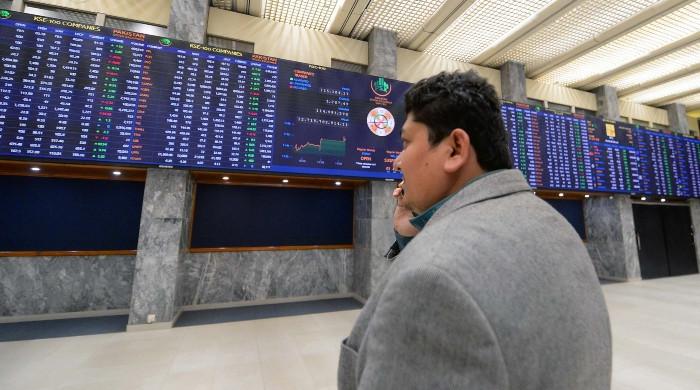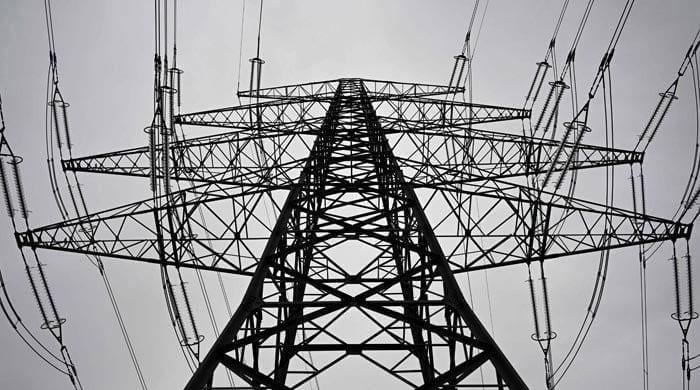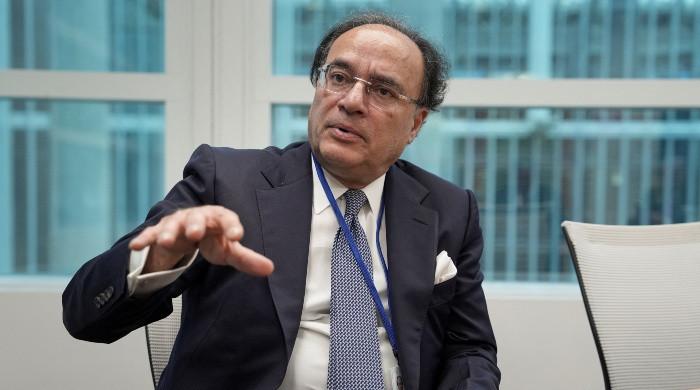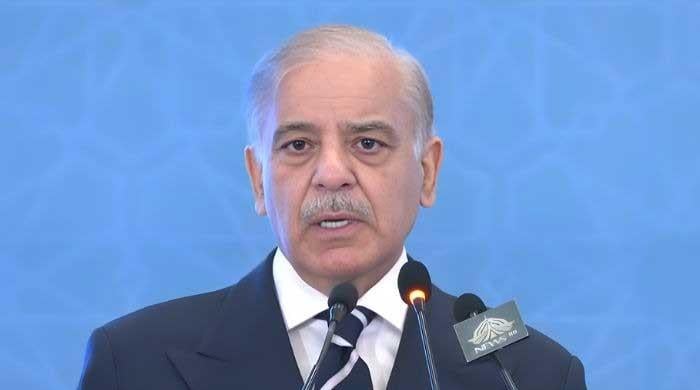Pakistan orders emergency fuel imports amid Iran-Israel war
Petroleum reserves enough to meet current demand, says Ogra
June 21, 2025
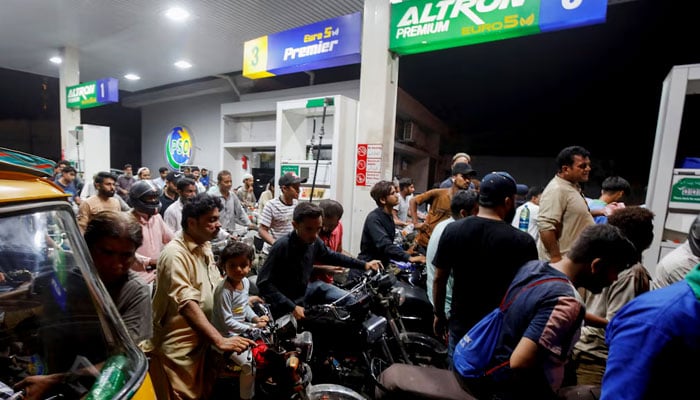
- Additional petrol will be available in country by July 1, officials say.
- Fuel prices may hike amid global trend.
- Oil tanker freight rates have risen by up to 15%.
In light of the ongoing Iran-Israel conflict, the Oil and Gas Regulatory Authority (Ogra) has instructed oil marketing companies (OMCs) to maintain a minimum of 20-day fuel reserves and ordered the immediate import of 140 million litres of petrol.
“All OMCs have been instructed to maintain the mandatory 20-day fuel reserves as required under their licencing terms,” Ogra's spokesperson said in a statement.
The spokesperson clarified that the country has adequate petroleum product reserves to meet current demand. "Ogra is closely monitoring the situation to ensure uninterrupted fuel supply," the statement said.
In addition, authorities have taken steps to accelerate fuel imports, including rescheduling the arrival of an oil vessel initially scheduled for July 6.
The ship, which is carrying approximately 70 million litres of petrol, is now expected to arrive on June 26, officials said.
Meanwhile, the Pakistan State Oil (PSO) officials have informed that an additional 140 million litres of petrol will be available in the country by July 1.
They also noted that further emergency tenders may be issued depending on how the regional situation evolves.
Furthermore, Pakistan National Shipping Corporation (PNSC) officials have warned that any closure or disruption in the vital shipping route could significantly impact Pakistan, which relies heavily on oil imports from the Gulf region.
Shipping industry sources reported that freight rates for oil tankers have increased by up to 15% amid regional instability. Vessels that previously charged around $900,000 per trip are now costing between $1.1 million and $1.2 million per trip. Insurance premiums have also increased significantly, rising from $15,000 to $22,000 per voyage.
Sources in the PNSC have confirmed that operational challenges have emerged in the Strait of Hormuz, particularly temporary GPS signal disruptions during certain hours.
One PNSC vessel reportedly had to delay its entry into the strait for two hours due to a GPS outage, they say.
Earlier, the government has ruled out any cut in the Petroleum Development Levy (PDL), as authorities warn that domestic fuel prices may increase in line with a 16% spike in global oil rates caused by the Iran-Israel conflict.
At a meeting of the National Assembly’s Standing Committee on Finance, chaired by Naveed Qamar on Monday, Finance Secretary Imdadullah Bosal said Pakistan had enough petroleum reserves for now, but stressed that if global prices continue to climb, local prices would have to be adjusted accordingly.
“We’re keeping a close watch,” he said. “But if rates go up internationally, we’ll have to increase ours too, and the levy is staying in place.
Opposition Leader Omar Ayub also raised alarm over the worsening outlook, saying Pakistan is already caught in a domestic debt trap and the conflict is likely to swell both the budget deficit and the trade gap.
In a rare moment of unity, Finance Minister Muhammad Aurangzeb agreed with the opposition’s assessment and confirmed that Prime Minister Shehbaz Sharif has formed a high-level committee to monitor petroleum prices and stockpiles.
The Middle East found itself plunged into a perilous new chapter of war following an unprecedented escalation of hostilities between Israel and Iran.
Israeli strikes have so far killed at least 430 people in Iran and injured 3,500, state media reported.




